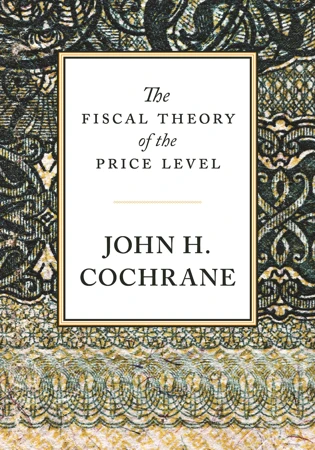The Fiscal Theory of the Price Level

Blurb
Where do inflation and deflation ultimately come from? The fiscal theory of the price level offers a simple answer: Prices adjust so that the real value of government debt equals the present value of taxes less spending. Inflation breaks out when people don’t expect the government to fully repay its debts. The fiscal theory is well suited to today’s economy: Financial innovation undermines money demand, and central banks don’t control the money supply or aggressively change interest rates, invalidating classic theories, while large debts and deficits threaten inflation and constrain monetary policy. This book presents a comprehensive account of this important theory from one of its leading developers and advocates.
John Cochrane aims to make fiscal theory useful as a conceptual framework and modeling tool, and for analyzing history and policy. He merges fiscal theory with standard models in which central banks set interest rates, giving a novel account of monetary policy. He generalizes the theory to explain data and make realistic predictions. For example, inflation decreases in recessions despite deficits because discount rates fall, raising the value of debt; specifying that governments promise to partially repay debt avoids classic puzzles and allows the theory to apply at all times, not just during periods of high inflation. Cochrane offers an extensive rethinking of monetary doctrines and institutions through the eyes of fiscal theory, and analyzes the era of zero interest rates and post-pandemic inflation.
Book summary
What is inflation, or its arguably even more troublesome brother, deflation? And what drives both? In most macroeconomic theories, by one form or the other it's 'too much money chasing too few goods'. That makes monetary policy the all-important lever to try and keep changes of the price level in a range that allows for decent economic planning, with interest rates taking centre stage as its primary instrument. Not so in this theory. John Cochrane demonstrates that by contrast, it's fiscal policy and the state's writ-like spending in competition with households and firms that drives inflation. Even more to the point, Cochrane deems government bonds as some kind of 'sovereign equity' the real return of which is balanced by changes in the nominal price level and sufficiently discounted against future changes in both interest rates and primary budget balances.

